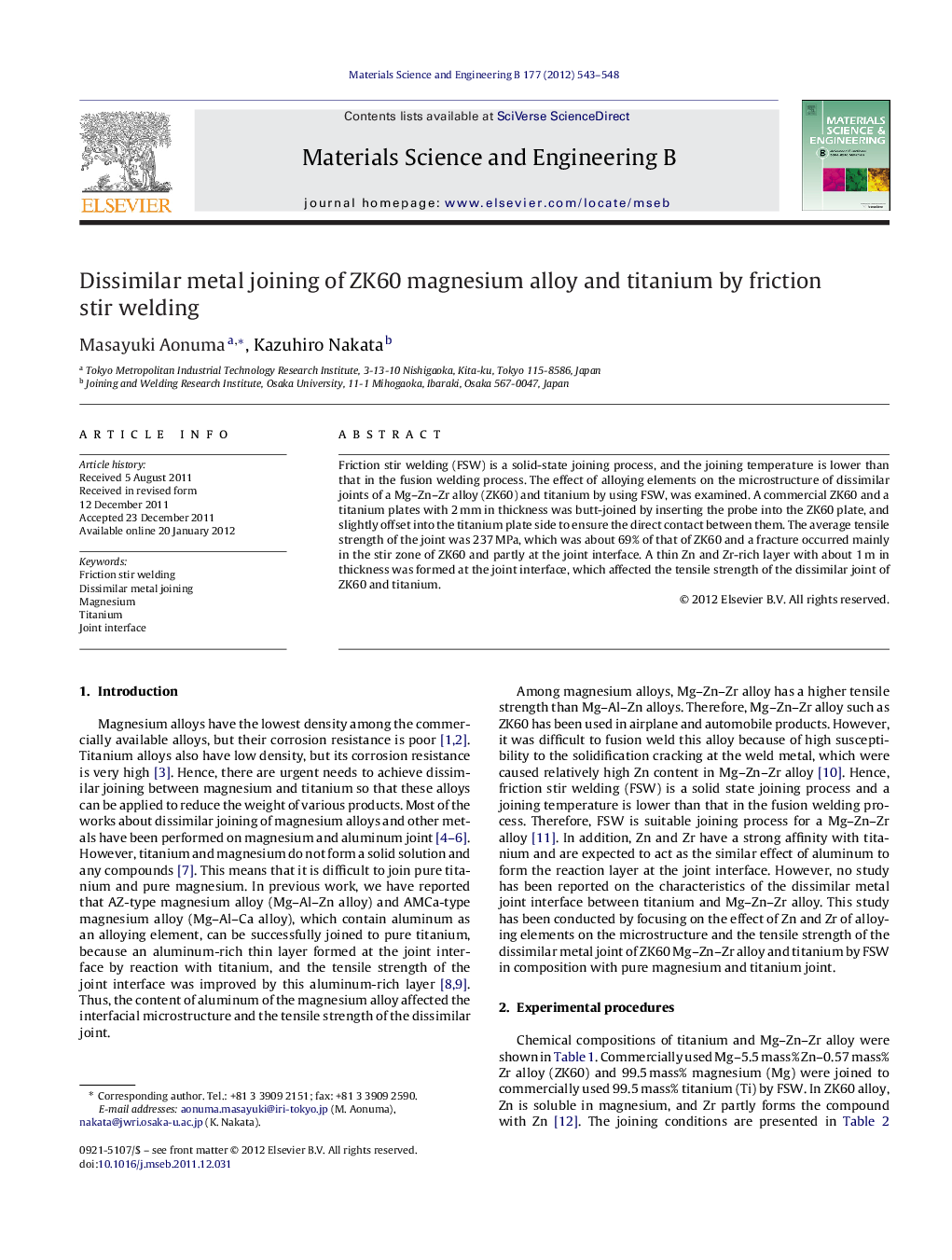| Article ID | Journal | Published Year | Pages | File Type |
|---|---|---|---|---|
| 1529506 | Materials Science and Engineering: B | 2012 | 6 Pages |
Friction stir welding (FSW) is a solid-state joining process, and the joining temperature is lower than that in the fusion welding process. The effect of alloying elements on the microstructure of dissimilar joints of a Mg–Zn–Zr alloy (ZK60) and titanium by using FSW, was examined. A commercial ZK60 and a titanium plates with 2 mm in thickness was butt-joined by inserting the probe into the ZK60 plate, and slightly offset into the titanium plate side to ensure the direct contact between them. The average tensile strength of the joint was 237 MPa, which was about 69% of that of ZK60 and a fracture occurred mainly in the stir zone of ZK60 and partly at the joint interface. A thin Zn and Zr-rich layer with about 1 m in thickness was formed at the joint interface, which affected the tensile strength of the dissimilar joint of ZK60 and titanium.
► Dissimilar joint of Mg–Zn–Zr alloy and pure Ti has been successfully made by FSW. ► Zn and Zr as alloying elements formed the reaction layer with Ti at the interface. ► Tensile strength of the joint with the layer was higher than without any layer. ► Alloying elements had beneficial effect to improve the strength of Ti and Mg joint.
